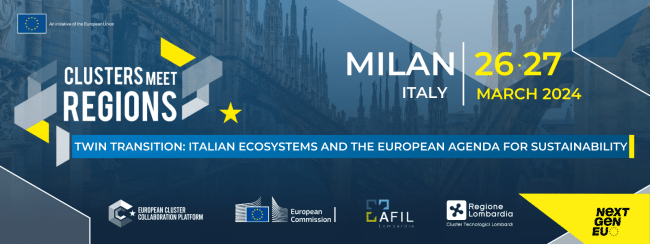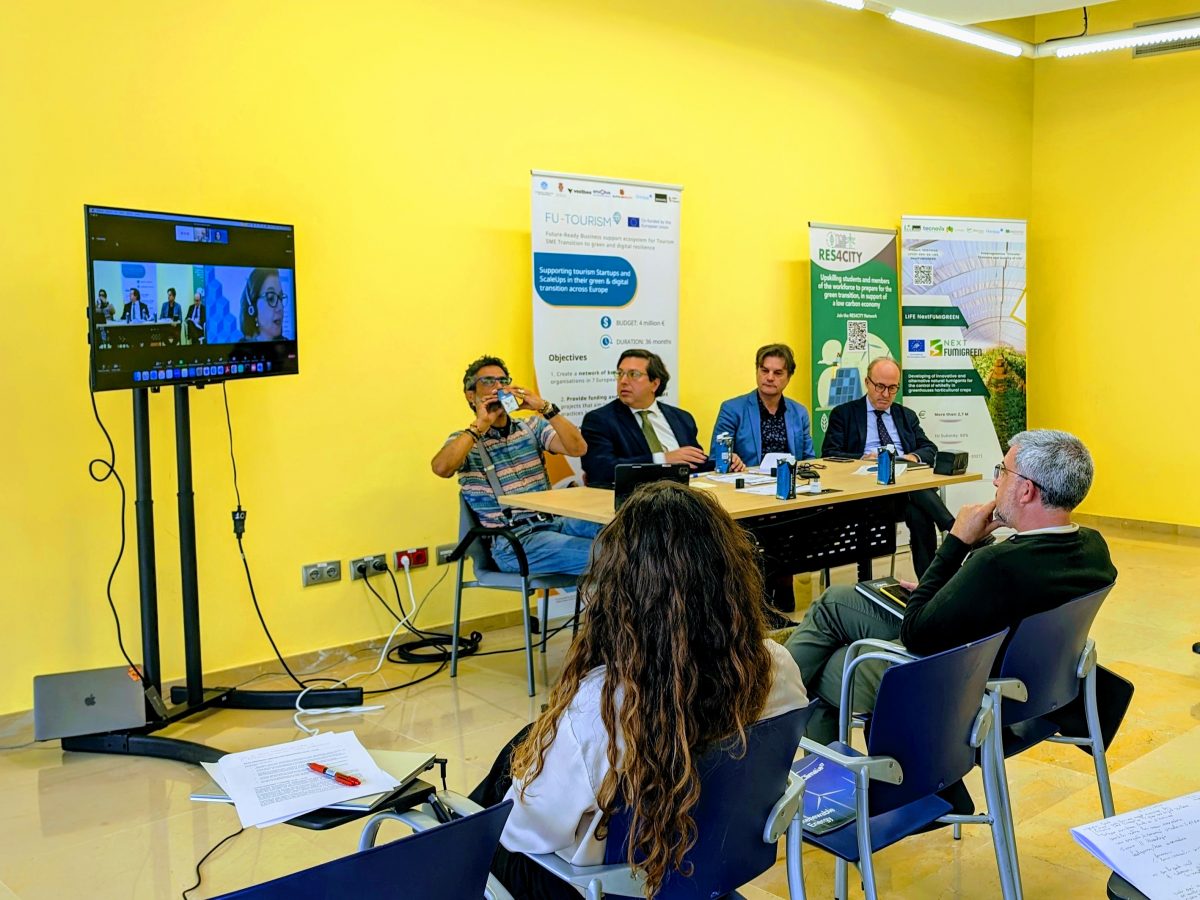- Juanma Revuelta, CEO of the Finnova Foundation, will present the SEUA, the Foundation’s own open innovation methodology to boost the success of startups and SMEs
- The event will launch the INDUSTRIAL WATER STARTUP EUROPE AWARDS to promote the challenge of industrial waters in Lombardy and Valencia
03/26/2024, Brussels. Juanma Revuelta, CEO of the Finnova Foundation, will represent the foundation at the “Clusters Meet Regions” event to be held in Milan (Italy) today, Tuesday, March 26, and tomorrow, Wednesday, March 27, 2024. The event is a space that will allow collaboration and knowledge exchange between European regions.
Revuelta will speak tomorrow at the event to explain the details and benefits of the Startup Europe Awards (SEUA) methodology, promoted by the European Commission and Finnova Foundation itself. The SEUA methodology, used since 2016 in various entrepreneurship initiatives, has a proven track record in fostering public-private collaboration and promoting innovation to boost the success of startups and SMEs facing challenges. This methodology is designed to address current challenges and promote innovative solutions aligned with the Sustainable Development Goals (SDGs).
Water SEUA: The Industrial Water Challenge
The focus of the presentation will be the launch of the second edition of the Water Startup Europe Awards, this time centered on collaboration between the Valencian Community and the Lombardy region (Italy), and focused on the management of industrial waters.
The new edition, supported by the Finnova Foundation, IVACE (Valencian Institute for Business Competitiveness), the Lombardy Region, and Wex Global, seeks to attract innovation and offer sustainable solutions to the challenges faced by industrialization in both regions. This initiative comes at a particularly sensitive time due to the impact of increasingly frequent droughts, affecting mainly four critical sectors: the agri-food industry, the fashion and textile industry, the ceramics industry, and the automotive industry. Lombardy and Valencia are emerging as the ideal regions to host an Accelerathon (idea acceleration contest) focused on the management of wastewater and industrial waters in these areas, especially because of their strengths in innovation, sustainability, and water management.
The challenge launch aims to invite entrepreneurs, startups, SMEs, universities, and corporations to participate and contribute innovative solutions. Participants will have the opportunity to win a European Acceleration Ticket, which will allow them access to significant European programs and develop projects with funds of up to 5 million euros.
Success cases
The Finnova Foundation partners in various European projects that bet on international cooperation and water management.
RES4CITY is a European project aimed at enhancing the development of sustainable renewable energies and fuel technologies in cities through the joint design of an educational program and the promotion of sustainability and circularity. It also includes an Accelerathon that proposes solutions focused on the revalorization of greywaters. The project, funded by the Horizon program, has a budget of 2.5 million euros.
Another project funded by the Horizon program is ONE-BLUE, which focuses on researching emerging pollutants and the effects of climate change on marine biodiversity and biota. With a budget of 6.2 million euros, ONE-BLUE will collect samples in the Atlantic Ocean, the Arctic, and the Mediterranean Sea to understand this harmful impact on marine biodiversity and biota.
LIFE ECOdigestion 2.0 aims to become the most versatile digestion control tool on the market, achieving environmental and economic benefits through the production of biogas by optimizing the use of organic waste. The project is financed by the LIFE program and has a budget of more than 970,000 euros, betting on biogas generation in sewage treatment plant digesters through the mixture of putrescible organic wastes (manure, poultry, organic fractions, MSW, HORECA, etc.).
Lastly, the MANUFACTURING4ALL project, with a budget of 60,000 euros and financed by the Erasmus+ program, is dedicated to implementing good practices based on digital competencies and transforming towards Industry 4.0.
Water SEUA aims to highlight the importance of international collaboration and sustainable innovation in water management, thus supporting the ecological and digital transition in Europe within the framework of the green and digital transition. The Finnova Foundation aims to demonstrate with this new initiative its commitment to those projects that promote sustainable practices, key to understanding the challenges we face.
About the Finnova Foundation
Finnova is a Spanish-Belgian non-profit foundation based in Brussels, which focuses on promoting innovation and entrepreneurship in the European Union. The foundation works in collaboration with various organizations and partners in the member countries to communicate and spread European projects. In addition, it offers support to start-ups and businesses through programs such as accelerators and incubators, and selection and award ceremonial events.


